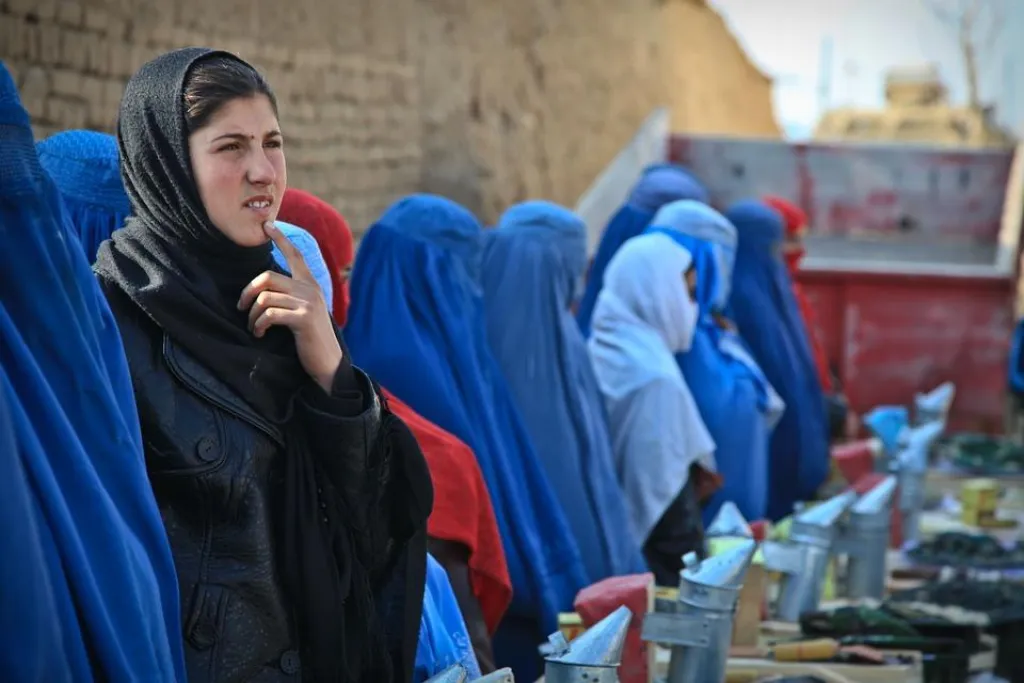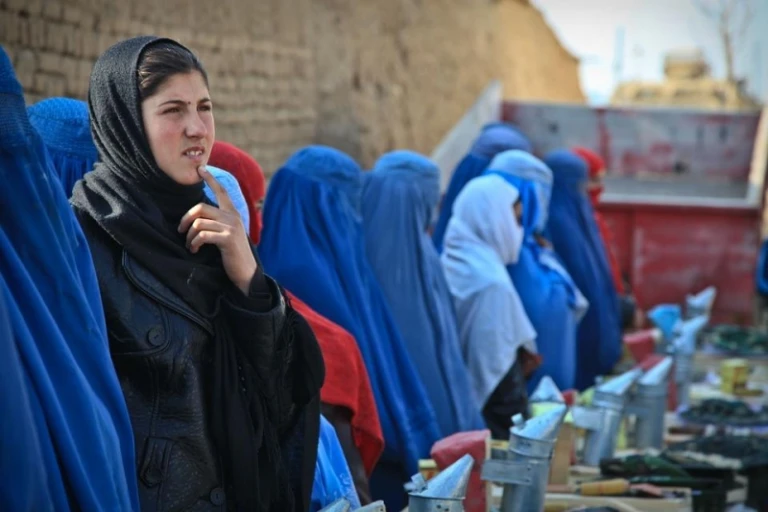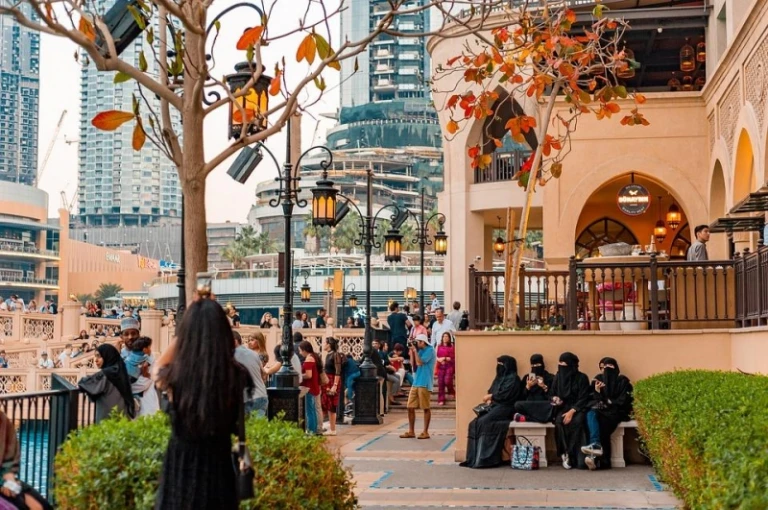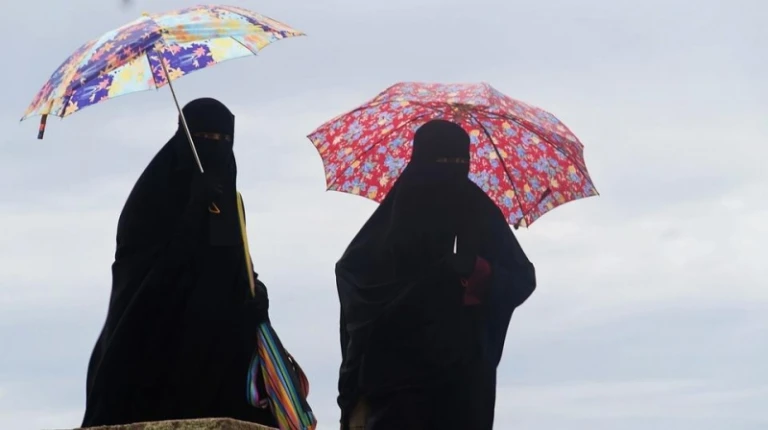Besides mountains, Sabah has so much to offer its visitors from vast clear blue waters to rare native wildlife. You will never be bored when you visit this hidden gem of Malaysia.
The Burqa Ban: Why and Where?

No garment is more symbolic of the debate between integration into society and tradition than the burqa. This piece of cloth has been under the limelight in recent years, facing bans across countries – France, Denmark, Sri Lanka, and most recently the Netherlands. Having spent some time living in Western societies, I know that this is a topic that has surfaced on more than one occasion for me.
The burqa is a garment donned by Muslim women which covers the whole body, including the face, eyes and the head. Often confused with the niqab (which leaves the eyes uncovered), the burqa was worn by women in the Arab Peninsula before Islam came into being. The religion adopted it as a continuation of the prevailing tradition.

Different countries in the EU have their own regulations (France, Belgium, Denmark, Austria, Bulgaria, Netherlands). France was the first European country to implement the full-face veil ban in public.
Women donning burqas and or niqabs can face a fine of €150 (~S$230) or be required to take a citizenship course. Those in support of the ban identified the garment as a means of repression towards women, and that such an ideology is not compatible with the values of a secular society.
Further, the Court also endorsed their stance that while it affects some Muslim women, at the same time there is no restriction to wear any kinds of garments that do not conceal the face. In October last year, the United Nations Human Rights Committee (UNHRC) had said that the ban enforced in France is a violation of human rights.
Belgium then followed suit in 2011. Those who are found breaking the law risks fines or being arrested. Some other countries that have enforced the so-called burqa ban are Chad, Cameroon, Niger, Sri Lanka, and Switzerland (partial ban).

The Netherlands is the sixth EU country to prohibit full-face veils in public (government buildings, schools, public transport) in August this year. It also includes ski masks and full-face helmets. Critics have argued that the ban makes it difficult for those wearing the burqa to go about their everyday lives, and implementing the ban is a waste of resources.
Banning the burqa is an attack on the very fundamental rights of exercising freedom of choice and thoughts, individual freedom, and control of their own bodies. Implementing the ban and criminalising the garment is not going to attain gender equality in countries, nor is it going to ensure national security, or ensure that ethnic and religious minorities are properly assimilated.
Sociologists have even studied the effects of the ban. One of the effects includes increased isolation for many women as they would prefer to stay home more and push the minority further away.

By banning the burqa, it is effectively preventing Muslim women from practising their basic human right to do what they want and express themselves how they see fit.
What happens if someone who dons the burqa out of her own free will and choice? Is she a criminal? Will she be arrested or fined because of practising her own personal convictions and identity expression?
Also read: Hijab vs Niqab vs Burqa: What’s The Difference?
Published at
About Author
Amira Rahmat
Subscribe our Newsletter
Get our weekly tips and travel news!
Recommended Articles
10 Hidden Gems of Sabah, Malaysia 10 Muslim Footballers That Will Inspire You And Your Goals HalalZilla consults the great archives of football to handpick our top Muslim players who’ve ever laced a pair of boots in the big leagues – especially those you didn’t know were Muslim!
10 Muslim-Friendly Islands in Indonesia Many travellers have either been to Bali and Lombok, or are planning a trip there – they are the most popular tourist destinations for Muslim and non-Muslim alike. . While these islands are tourist-friendly and especially Muslim-friendly, there are many other islands in Indonesia that are just as beautiful and have lots to offer. Check […]
12 Culture Shocks You’ll Experience During Umrah Welcome to the land of blessings & calmness ~
2019 Emirates FA Cup Final Winners Will Celebrate With Non-Alcoholic Champagne Regardless of the team you support, it’s heartening to know that the winners will be offered non-alcoholic champagne to cater to those who don’t drink.
Latest Articles
The Stars are Back: A Complete Guide to the Newly Reopened Planetarium Jakarta The long-awaited iconic attraction in Jakarta is now officially open!
Heavy Snow Triggers 1,000km Traffic Jams and Flight Disruptions in Paris Paris Traffic Jams Reach 1,000km Amid Snow Disruptions
Bali 2026: What Muslim Travellers Need to Know About New Entry Rules and Tourism Policies With these new measures, Bali is shifting toward a more orderly, safe, and sustainable tourism model.
Best Theme Parks & Water Parks in Malaysia for Muslim Families with Kids 2026 Enjoy halal-certified food, family-friendly rides, thrilling attractions, and fun-filled adventures across Selangor, Johor, Penang, Melaka, and more.
Best New Instagrammable Cafes in Bali: Muslim-Friendly Spots with Amazing Views must visit cafe in Bali

